While all festivals across various cultures and religions celebrate human relationships, no other festival highlights the bond between a brother and a sister like Raksha Bandhan does. Raksha Bandhan is also known as Rakshabandhan or very simply as Rakhi.
A Rakhi is a sacred thread that sisters tie in the hands of their brother to strengthen the bond. We are here exploring the Festival of Raksha Bandhan and everything that you wanted to know about it.
Raksha Bandhan 2020 Date: Monday, 3rd August
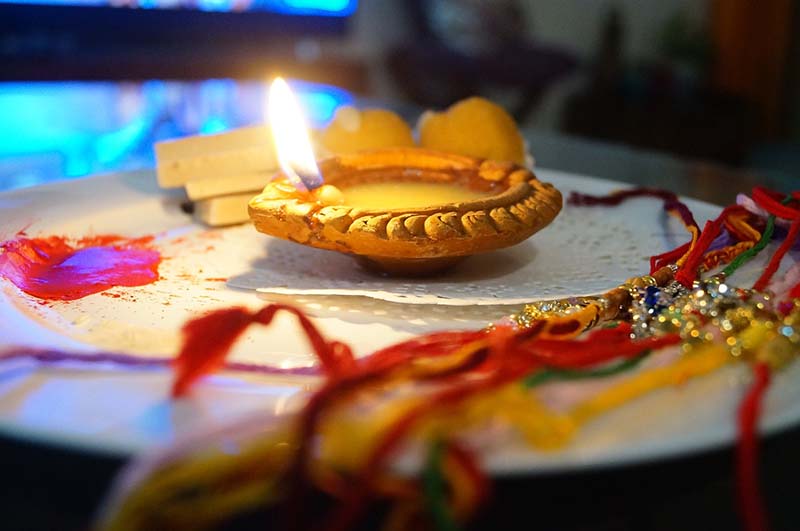
With Raksha Bandhan, there is a promise that a brother will protect his sisters all the time. Across history, there are various legends on how brothers in India have led down their lives protecting their sisters.
This is no ordinary promise that is made on the day of Raksha Bandhan. While there is one more Hindu festival that celebrates the bond between brothers and sisters. Please read about Bhai Dooj which is a great festival of the bonding between siblings.
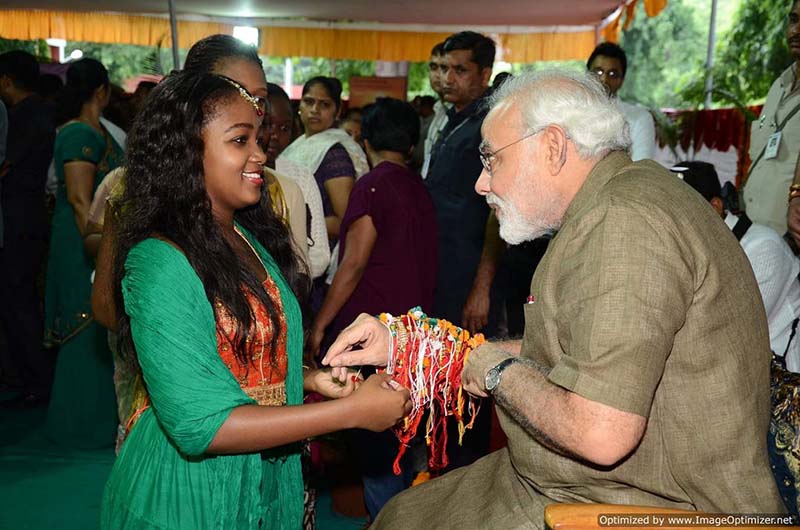
Women from different places of the World tie Rakhis to Indian PM Modi on Raksha Bandhan Source
History, background and how and why Rakshan Bandhan is celebrated
Raksha Bandhan is a very well known festival of Hindus and is even celebrated by other religions like Sikhs, Jains and even Muslims in India. People, however, do not know the history, background and the context behind Raksha Bandhan.
Raksha Bandhan Date and When is it Celebrated
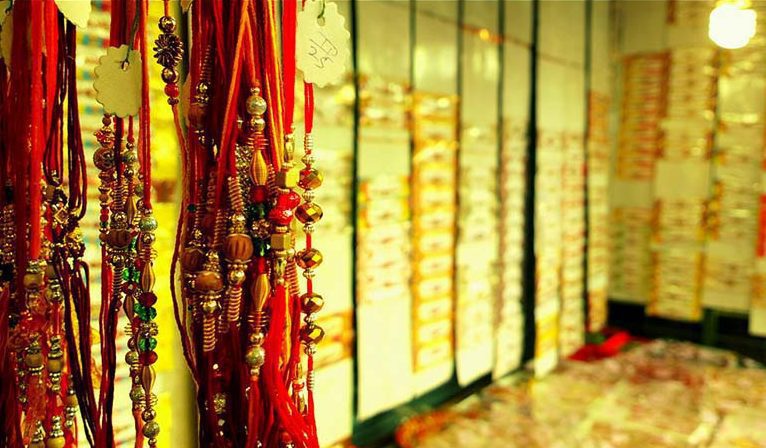
Although, the festival of Raksha Bandhan occurs on the full moon day of the Shravana month as per the Hindu calendar, the dates may vary every year. In 2018 Raksha Bandhan will be celebrated on the date of 26th August – Sunday for the year 2018.
Raksha Bandhan mostly falls in the month of August, however few times it also falls in the month of September as Hindus follow lunar calendar unlike solar calendar followed by many other religions across the world.
History of Raksha Bandhan
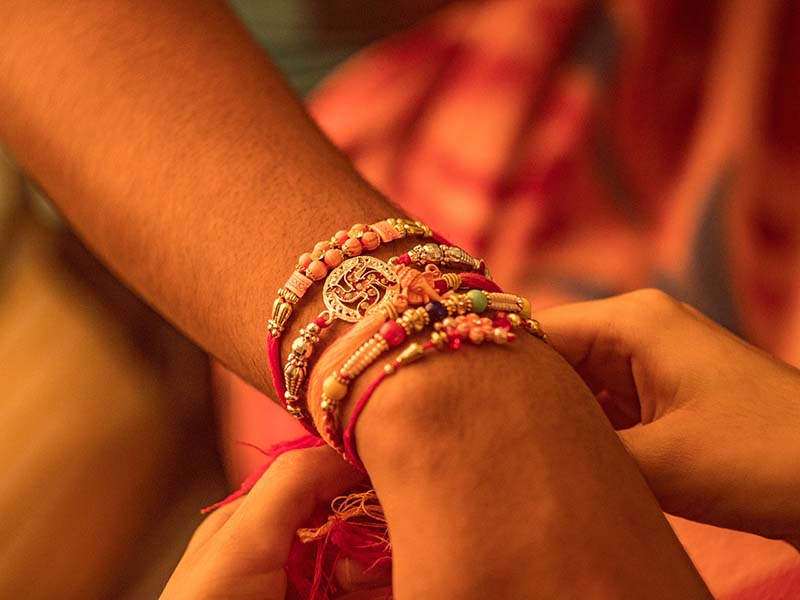
Hindu Mythology is full of mentions of the festival of Raksha Bandhan. If you ask me what is the earliest mention of Raksha Bandhan. The answer would be since the beginning of time! Hindus believe in cyclic nature of time. Read more about Indian Yuga system. The story has references back in Hindu Mythology and Trinity of God, which in fact is the beginning of time for Hindus.
[su_box title=”You May Also Like” box_color=”#bb2828″] Amazing Rakhi Gift Ideas For Your Sister This Raksha Bandhan [/su_box]
Raksha Bandhan During Mahabharata

In the great Hindu epic of Mahabharata, there is an event mentioning Raksha Bandhan. During the Rajsuya Yagya. After the death of Shishupal’s , Krishna was left with a bleeding finger and Draupadi tears a piece from her sari and ties it to Krishna’s wrist to staunch the flow of blood. Pleased by the kind gesture, Krishna vowed to repay the debt to her.
Mahabharata also has a mention of Kunti tying a rakhi to her grandson Abhimanyu.
Though Mahabharata is not considered a recorded history but the mention itself points to the celebration being very old. Read more about the historicity of Mahabharata
Raksha Bandhan during recorded history, the tale of Alexander and Porus
Fearing for the life of her husband, Alexander’s wife Roxana approached Porus and tied a rakhi around his wrist what followed was a promised by the king not to harm Alexander. Legend has it that during the battle, when Porus at some point lifted his hand to give Alexander the fatal blow he saw the rakhi and stopped.
Rani Karmavati of Chittor
Another famous rakhi story from history is about the Rani Karmavati of Chittor. Facing the threat of invasion from the Sultan of Gujarat, Bahadur Shah, she sent a rakhi to Humayun the Mughal Emperor asking him to save her family and her kingdom.
A much moved Humayun, abandoned his on going military campaign in Bengal and rushed to her help, but was too late to save her. She and the women of the kingdom had preferred to immolate themselves rather than fall into the hands of the enemy.
Raksha Bandhan and Hindu Mythologies
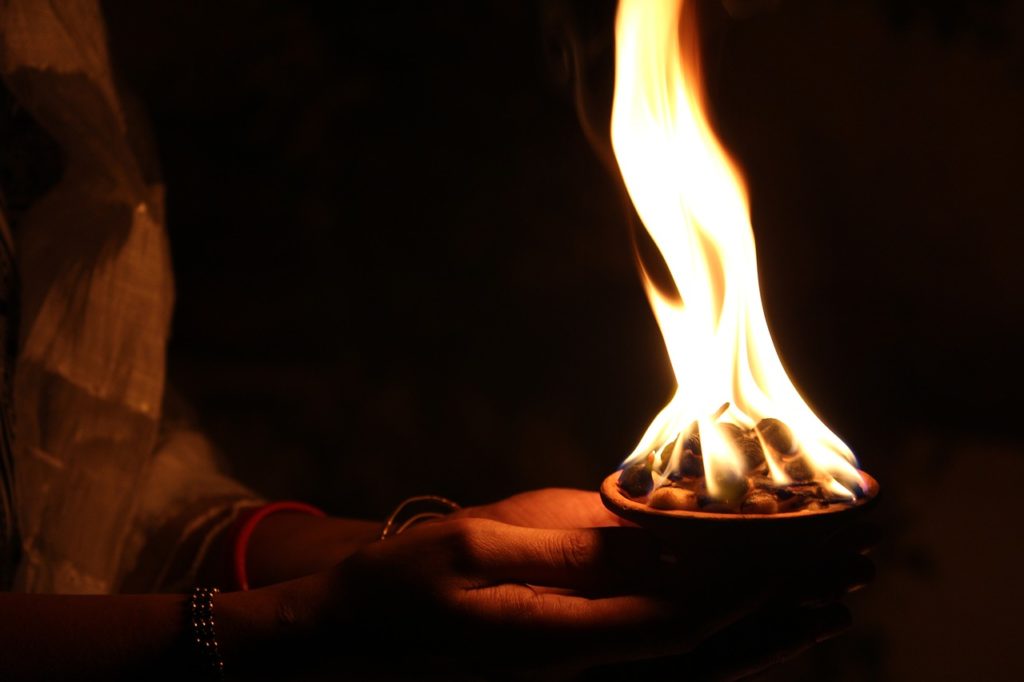
The origin of Raksha Bandhan can be traced back to the mythological times, which recounts many stories on how this custom came into being. The most famous legend relates to a war between the Gods and the Demons. The Gods lead by Lord Indra were on the verge of defeat.At this point Lord Indra approached his guru Brihaspati and sought his help. Guru Brihaspati advised him to tie a sacred thread powered by mantras on his wrist on Shravan Purnima. On that day, Indra’s wife Sachi tied the thread on his wrist and Gods won the battle. Since then it become a common custom in India for women to tie a thread on the wrists of soldiers going for war, with the hope that it will protect them and lead them to victory.
Goddess Lakshmi and King Bali
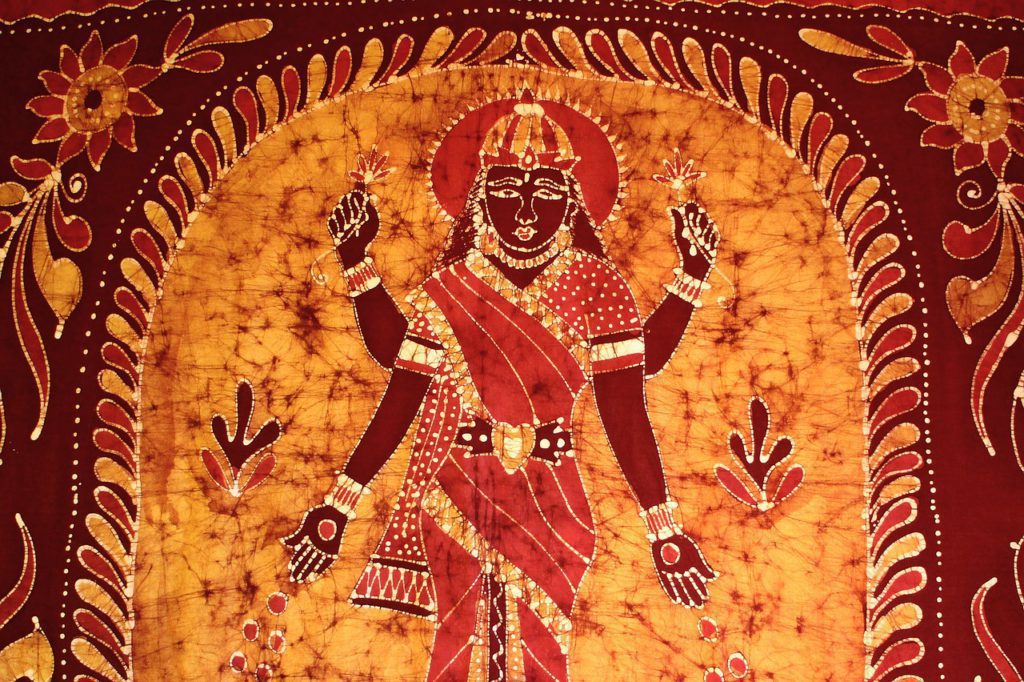
In another story, Lord Vishnu pleased with the extreme devotion of his disciple, the demon King Bali, promised to guard his kingdom, abandoning his own abode in Vaikunth. Meanwhile, Goddess Lakshmi, wanted her lord to be back with her in his abode. She went to Bali disguised as a Brahmin and sought refuge with telling him that her husband had gone away on some long errand.
Then, on Shravan Purnima she tied a thread on King Bali’s wrist wishing for his wellbeing. In return he granted her one boon and the goddess asked him to return her husband. The Goddess then revealed herself to the confused king and told him the real story. Overcome, the King asked Lord Vishnu to return with his wife to his abode. But having pledged his entire life to protecting Bali, the lord was unable to do so. To resolve his dilemma, it was decided that Vishnu, Shiva and Brahma will guard Bali for four months each.
Lord Yama and Yamuna
It has also been said that Lord Yama and his sister Yamuna also practiced Raksha Bandhan. Yamuna tied a sacred thread on Yama’s wrist and bestowed immortality on him. Since then Yama promised that whoever gets a rakhi tied by his sister and vows to protect her will become immortal.
How is Raksha Bandhan Celebrated in Present Time
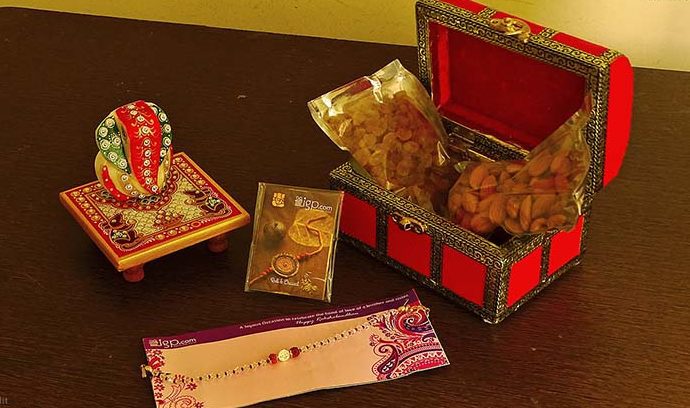
Mentioned to be started by the Gods, the tradition is carried on by many brothers and sisters in India. Along with the promise of love and protection the festival has taken on rich and expensive colour, with designer rakhis being the norm. Jewellery and other costly items have replaced the more humble gifts that the brothers used give in the past.
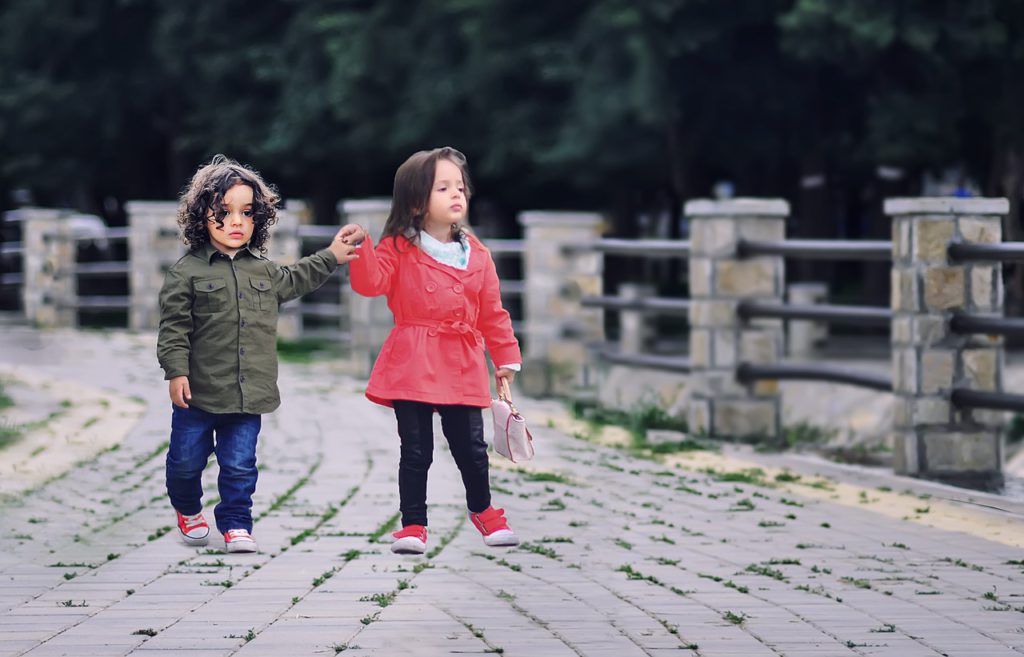
Raksha Bandhan celebrations may have begun in the Vedic era, but the tradition continues with the same vigor in present-day India. From a simple sacred thread called kalawa, to modern-day e-rakhis sent to brothers abroad, Raksha Bandhan has drastically evolved but continues to nourish the brother-sister bond
As times are changing, sisters are not only seen tying rakhis to their siblings, but donning some themselves too.
While we never know who tied the first rakhi to whom, but the bond between sisters and brothers are undoubtedly strengthened to an extent that we must cherish the festival and its beauty.


